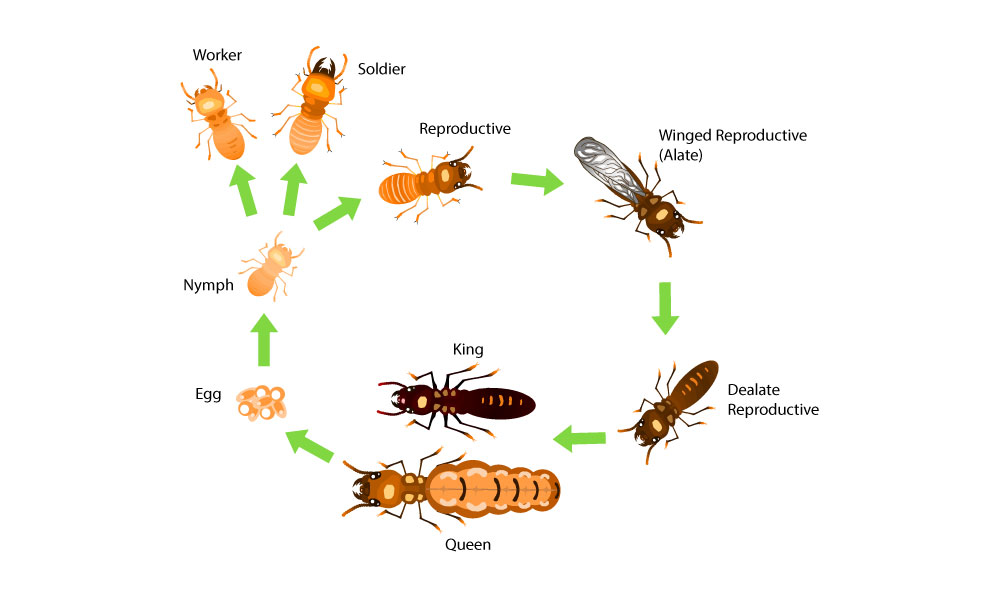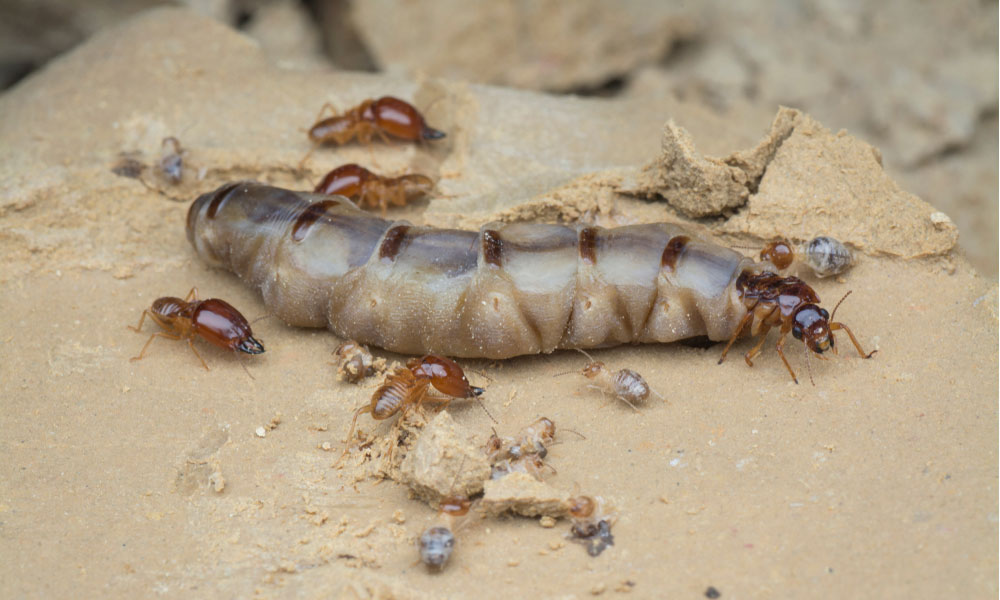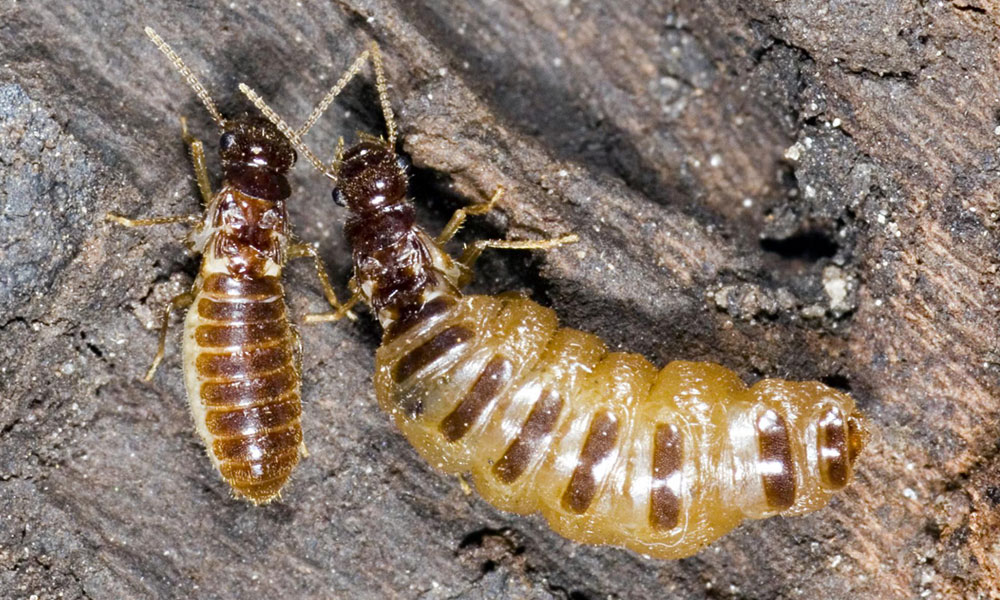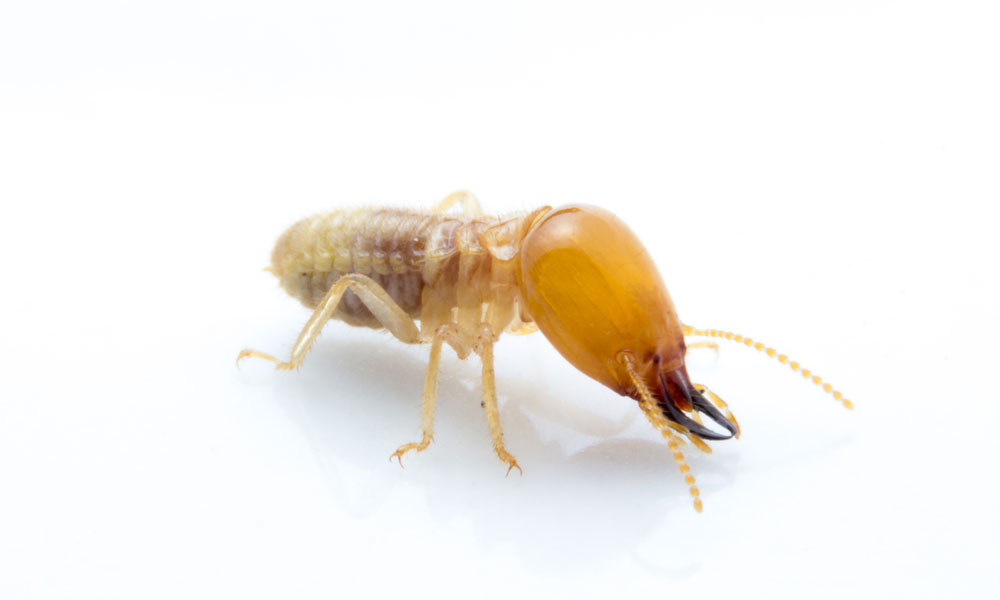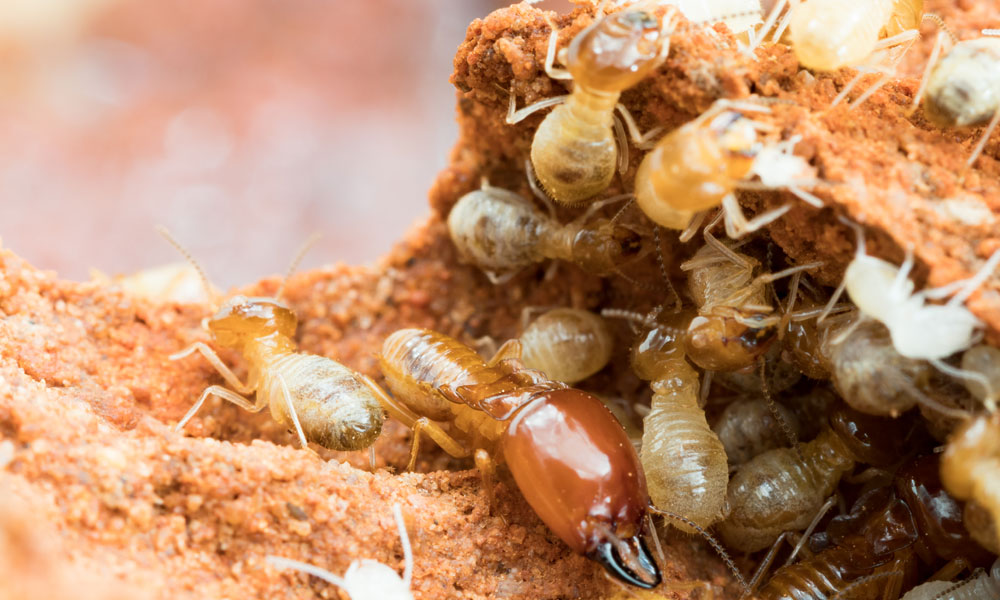Home insurance is designed to cover risks and damage that is accidental and sudden. So no, insurance will NOT cover you against termite damage. Australians spend BILLIONS of dollars on termite repairs every year, and none of it is covered by home insurance. Be aware! Termites are your responsibility. This is one termite myth which causes Australian homeowners some of the most significant financial losses. Don’t turn to Insurance companies for termite help!
Yes, and many baiting systems use hardwood baits to lure in foraging termites. If you don’t believe us, then we’ll send you hundreds of pictures of peoples’ hardwood framed homes who thought the same! “Hardwood framed homes are safe from termite attack!” is one of those termite myths which is commonly spruced by real estate sales agents… Don’t get caught.
No, pouring diesel or petrol onto termites will only succeed in killing the contacted termites, whilst the remainder of the colony retreats from the area, making treatment almost impossible until the colony can be located in another location. Another one of those termite myths which has gained traction from many farmers on the land, however with the research the CSIRO has been able to do over a period of many years, we know that killing small amounts of termites with solvent or petroleum based products makes no impact on the health of an attacking termite colony.
Termites will consume treated timber under certain circumstances. Some timbers may not be fully treated right through its thickness, leaving the centre susceptible to termite infestation. Moisture is a significant problem in some treated timbers.
Whether you live in a new house with a physical barrier, or an existing house with a chemical barrier, your quarterly, bi-annual or annual termite inspection are a must to maintain any warranty. If you fail to have your recommended inspections, your warranty is likely to be invalid, and any termite damage will be your responsibility.
Some black ants will eat termites, however, termites build mud tubes to conceal their presence from predators and sunlight. Termites can co-exist without their presence being noticed by their enemies.
Termites are attracted to moisture which creates a higher risk of termite infestation in damp areas.
Yes, this is true in most castes of termites. Termites will generally travel in ‘mud tubes’ to protect themselves from sunlight and predators. The term ‘White Ant’ has been used to describe termites as they lack the protective pigment which limits their ability to cope with exposure to sunlight.
Some species of termites live predominantly in trees and are known as ‘arboreal’ termites. These nests are visible as a dark ‘lump’ or ‘growth’ on the branch of a tree and can be found in parkland as well as suburbia. Many other species of termites build their nests in tree stumps or under patios and can travel over a hundred metres in search of a suitable food source to feed the colony. These are known as ‘subterranean’ termites and are generally the most harmful to man made structures. They are difficult to detect and are not often located until extensive damage has been done.
Many species of termites build their nests in tree stumps or under patios and can travel over a hundred metres in search of a suitable food source to feed the colony. These are known as ‘subterranean’ termites, and are generally the most harmful to man made structures. They are difficult to detect, and are not often located until extensive damage has been done.
If you have found a small amount of termites in your yard, it is likely a colony of millions are within 100 meters of your home. Eradication of the colony will require treatment with an approved termiticide.
The idea of the Termicure Baiting System is to provide foraging termites with an attractive food source to lure termites in for treatment, before they can infest your property.
The following information will give you great insight about Termites and how they thrive and live, but if you still have questions about termites, their behaviour, or just need termite help, then please feel free to contact us
